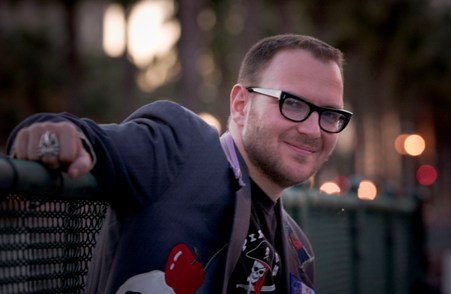Having already been through town this May to read from his new YA novel Little Brother (Tor Teen, $17.95), London-based author and blogger Cory Doctorow was willing to let his thoughts wander from that book when we spoke recently by phone. Though, since hes also teaching workshops during his weeklong visit for the Clarion West science-fiction writers series, he says of the book, Im gonna do a reading. Its been a New York Times bestseller for six weeks, Id be crazy not to. Originally from Toronto, Doctorow–no relation to E.L. Doctorow–is a force behind the popular technology and sci-fi Web site BoingBoing.net. Hes written extensively on technology, privacy, and digital rights management. In the past, Ive talked at Microsoft on DRM. Ive done events at the Science Fiction Museum for its Pop Conference. Currently hes worried about how Microsoft and other companies are designing software that allows your personal devices, be they cell phones or PDAs or BalckBerries or Amazon Kindles, to be controlled remotely. Thus, for example, lets say a quote-unquote illegal or unlicensed text (or song or ringtone) is detected on your device. The licensing authority could then shut down your iPhone. Do we really want to design them so people can turn off these remote devices? asks Doctorow rhetorically. He compares it to OnStar navigation systems, some of which are equipped with kill switches to, for example, prevent a rental car from being driven out of its contract area. Or to keep truckers from speeding? Or if an alcohol sensor in your car thinks youre drunk? Wait a minute, might that not be a good thing? This is one of those ideas that soundsgreat. But putting them in a general-purpose computer or a cell phone is a really bad idea. What if your illegal copy of some new audiobook on your iPhone is detected, your phone is shut down via remote, and then (by coincidence) your car breaks down in the sticks? Would you have to pay the publisher for the digital download before you could call AAA? Thats not like a Russian spammer seizing remote control of your PC to relay more spam. Theyre exploiting flaws in the software, says Doctorow. But this is software design from the manufacturers. In the supposedly law-abiding world of technology, Microsoft has always taken the attitude that there are times the owner of the computer shouldnt be in control of the computer. Anyone whos ever had Microsoft Word shut down with one of those illegal operation error messages will know exactly what hes talking about. Even on your cell phone, You may be a Microsoft customer without even knowing it. And Googles promised new open-source phone software (codename Android) wont save you: Its still vapor. All of which sounds like a sinister corporate plot in a sci-fi novel, perhaps like Little Brother? Why, yes! In which teenagers resist Big Brother, state surveillance, and even the Department of Homeland Security. My new book is all about kids who use technology to preserve security. And Doctorow, no techno-pessimist, compares those kids to the cell phone-equipped peasants of Burma and China who, despite natural disasters and authoritarian state controls, were able to get vital information out of those countries (no matter that the networks were government owned). But, hey, maybe thats his next book. BRIAN MILLER Tue., July 8, 7 p.m., 2008
Having already been through town this May to read from his new




